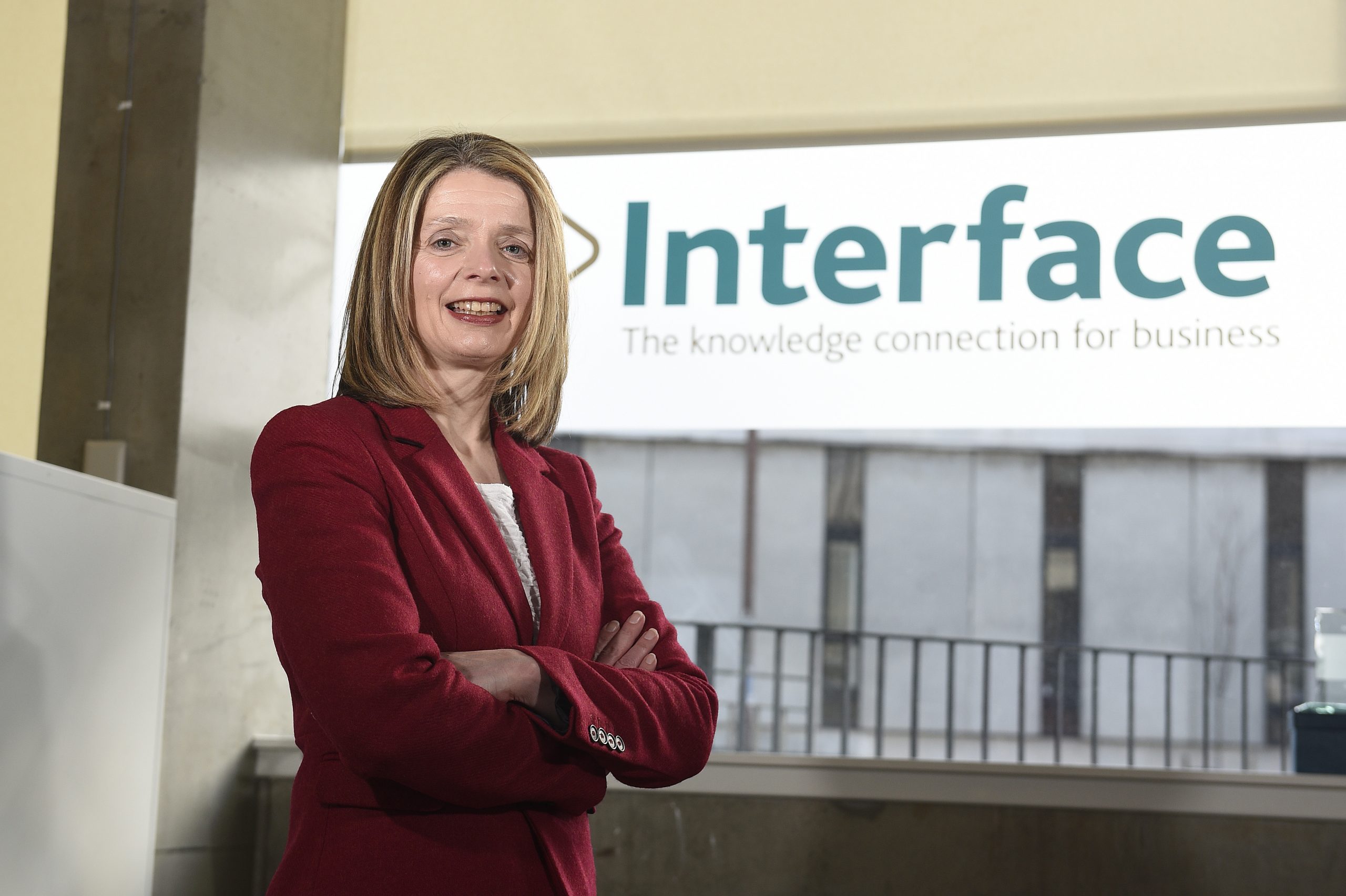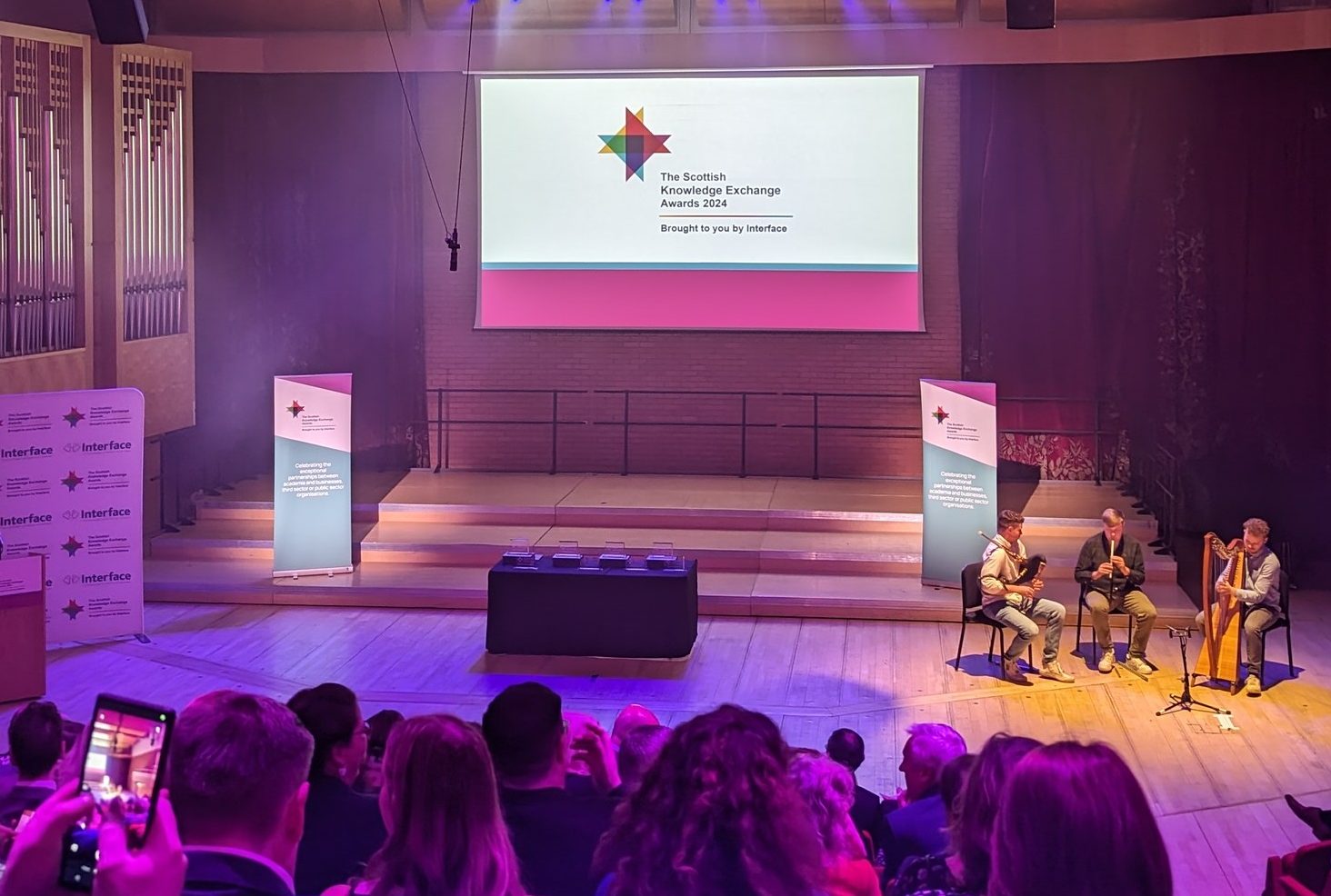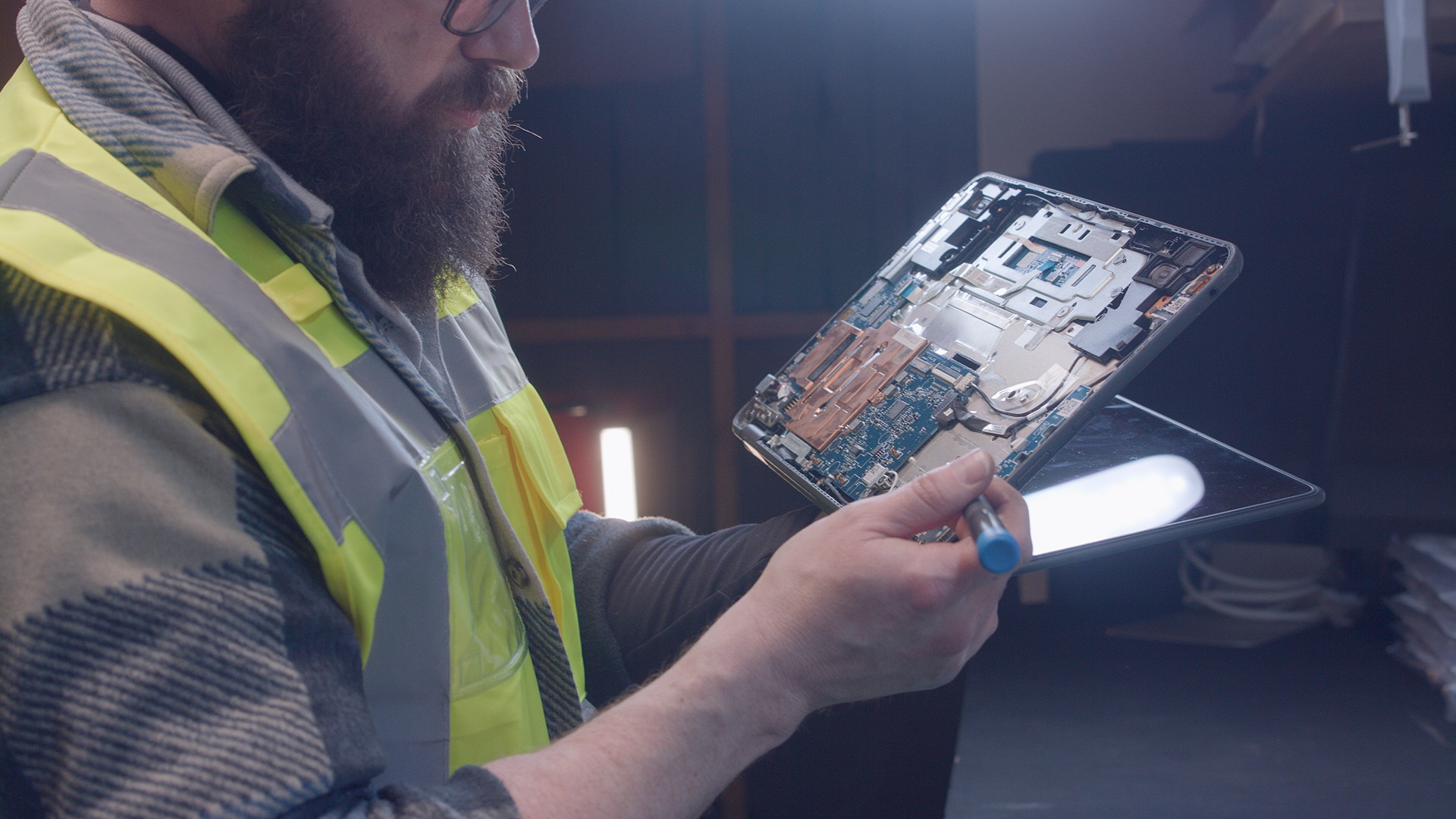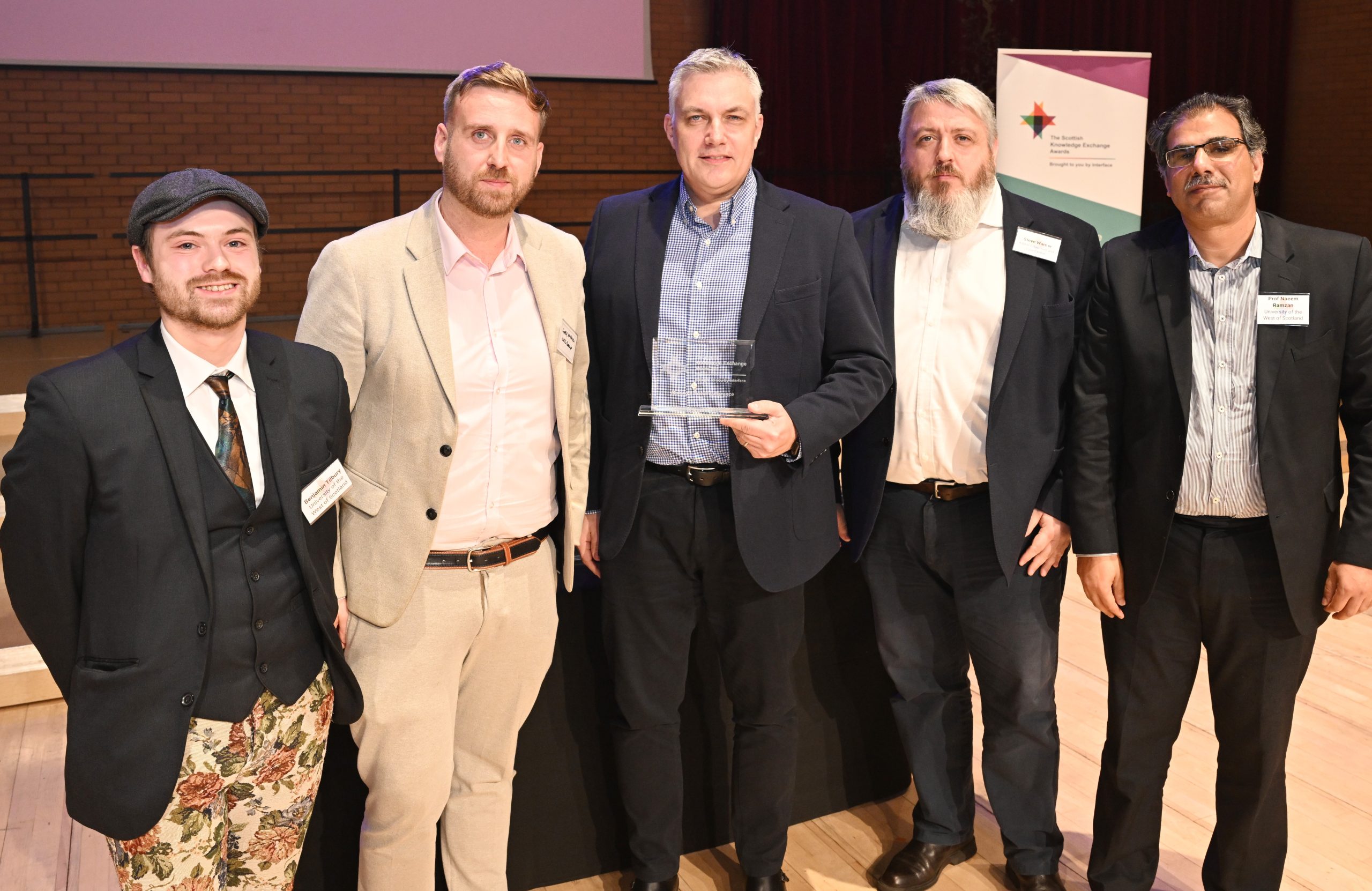Blog
Partnerships based on trust are win-win for all

Dr Siobhán Jordan, Interface’s founding director, established the service with a “blank sheet” in 2005 after recognising the potential for greater collaborations between businesses and universities. We asked a few pertinent questions about the past 15 years and where knowledge exchange is heading in future.
How does it feel for Interface to reach its 15th birthday?
For me, reflecting back on the last 15 years, much has changed across Scotland, the UK and globally in establishing business – academic partnerships. However, I can take much pride in the fact that the fundamental principles that were the bedrock of Interface and the wonderful team that I led have remained the same – exemplar customer service coupled with being an impartial translator, matchmaker and relationship manager between businesses and academic teams. Added to that is patience, persistence and my tenacity to try and do the right thing for everyone.
I am proud that from a humble beginning of brokering 5 collaborative R&D projects in year 1 we have increased that number to 329 in the last twelve months– that’s a staggering 6,480% growth.
Why do you think it has been such as success in finding the right academic experts for solving business challenges?
Reaching a significant milestone always makes me stop and think – what has worked well and what can be improved. There are many contributors to the ongoing success of Interface; first and foremost the ability to inspire and build trust with companies to consider collaborating with an academic partner, particularly when they may not have reached out to a research team in the past. Developing compelling business led propositions that offer interesting challenges to our many academic partners across multiple disciplines is also key to successful brokerage. And then there is the sprinkling of magic; creating impactful partnerships that make a real difference to society and the economic prosperity of Scotland which in turn has given our public sector funders the confidence to continue to support the service.
In 2005, when you established Interface, what was the relationship like between industry and academia?
Scottish Universities have a long-standing track record of spinning out companies and licensing technologies for commercial exploitation. As I write this; it is timely to dip back into the annuals of history.
A report for the Taskforce on Knowledge Transfer established in 2003 by Scottish Funding Council (SFC), Universities Scotland and the principals and chairs of Scottish higher education institutions noted the relative under-investment in R&D by the Scottish company base and highlighted:
“We recommend that the role of university knowledge transfer to indigenous SMEs is worthy of Taskforce attention within the context of a system we would characterise conceptually as a “stimulation and support escalator” for business innovation”.
When I look back at the approval papers for the original concept of Interface in November 2004 the working title was “Single gateway for research and knowledge transfer” and the minute of approval from the Scottish Funding Council read:
“We gave approval for a proposal from Universities Scotland to pool aspects of Scottish higher education institutions’ knowledge transfer services by providing a single gateway to business and for potential investors”.
Fifteen years ago, there was a real disconnect between SMEs knowing how to access the knowledge and talent from universities and understanding how new knowledge from academics could help solve their stubborn challenges. From a small company perspective, there were many different doors (and high walls!) to navigate, different terminologies and it was quite a daunting prospect to quickly find the right person at the right time.
Interface is key to unlocking the doors, overcoming the perceived barriers and perceptions around speed of response, IP ownership and cost, providing a helpful hand to over 5,000 businesses to ensure that accessing knowledge, technologies and talent can accelerate their innovation and support business growth.
In the early days of Interface, I can recall meeting an engineering company who had struggled to solve a challenge for over three years. They had never thought of reaching out to an academic partner – it was too complicated to even begin to try. Always up for a challenge, I was quickly able to identify relevant expertise in a chemistry department and the problem was solved within a week. A lesson learned for me that no mission is impossible and for the company to always ASK – Always seek knowledge!
What has been the most fundamental change in the past 15 years?
Knowledge exchange, innovation, entrepreneurship and intrapreneurship have come of age over the past fifteen years. If we reflect back to 2005, the history books note the following medical milestones:
- (Bird Flu) H5N1 strain of Avian Flu claims more lives in Indonesia and other countries around the globe.
- The Spanish flu virus is reconstructed and shown to be closely related to the Avian flu virus.
We are daily witnessing tremendous strides in the medical and economic recovery responses to COVID-19 and at the heart of many of these are academic teams collaborating with companies across Scotland. This porosity and ease of access is hugely welcome and ensures that knowledge is being made useful at pace.
Indeed, the pace of adoption of technology in the last 15 years has been breathtaking. Like many organisations, with online access to many platforms such as Teams, Webex and Zoom we have seamlessly continued to exchange knowledge with many businesses locally, regionally and globally working from our homes in the past six months. It would have been quite a challenge 15 years ago!
The many partnerships that have been created by Interface show real diversity – from internships, contract research, knowledge transfer partnerships, licensing, secondments, collaborate R&D. Incentives to offset the cost of the collaboration are in place from a business perspective including Innovation Voucher and Knowledge Transfer Partnership funding. From academics, delivering societal and economic impact from commercial exploitation of their research helps demonstrate return on investment to funders. Alongside this we have seen a real step change in the desire of undergraduate and postgraduate students to gain experiential learning – partnerships with companies can make a real difference to developing the desired metaskills for the world of work.
What are the major benefits for a) industry and b) academia in partnering?
Through our impartial approaches of matching business led requirements from all industrial sectors to all academic disciplines over the last 15 years, we offer unique insights on the benefits from knowledge exchange. For businesses accessing knowledge from academic partners delivers real and tangible impacts including securing and creating jobs, enabling company growth and delivering new products, processes and services. For any company working with Interface can accelerate early stage ideas to invoices through commercial exploitation. For academic partners collaborating with businesses offers opportunities to apply their research in new areas, to support the development of their students and to demonstrate how investment in research can truly make a difference. Partnerships based on trust are a win-win for all.
What do you see as the challenges ahead for knowledge exchange?
Ever the optimist, I see many opportunities for knowledge exchange in the years ahead. We know that there are many more companies that can benefit from connecting with academic partners through Interface – every year over 60% of the companies that are supported by Interface are embarking on their first collaborative project with an academic team. So, we want to inspire many more as to the art of the possible.
However, ever the realist, I am also aware that many organisations and businesses face significant challenges in remaining viable and retaining staff. The ideas and insights Interface has identified from “on the ground” approaches to businesses driving innovation can help reimagine and reconstruct provision within the challenges of the current environment. Given the significantly changed circumstances that now exist for individuals, universities, colleges, businesses, society and the economy as a result of COVID-19 , we want to enable many more profitable partnerships to support the nation through the recession and into recovery.
Some final thoughts – the sheer diversity of the end products, processes and services resulting from the partnerships that we have helped along the way has been amazing and humbling; from enhanced software for adults and children with brain injuries and learning difficulties, to market leading thermal energy storage for homes, businesses and communities around the world.
Many, many people have contributed to Interface’s success – my heartfelt thanks to you all in whatever way you have helped in the past 15 years. And I do hope that there be many more significant milestones ahead for Interface and knowledge exchange in Scotland.
***
Take the leap, turn ideas into invoices and contact us to find out more about partnering with academic experts over a virtual coffee.



